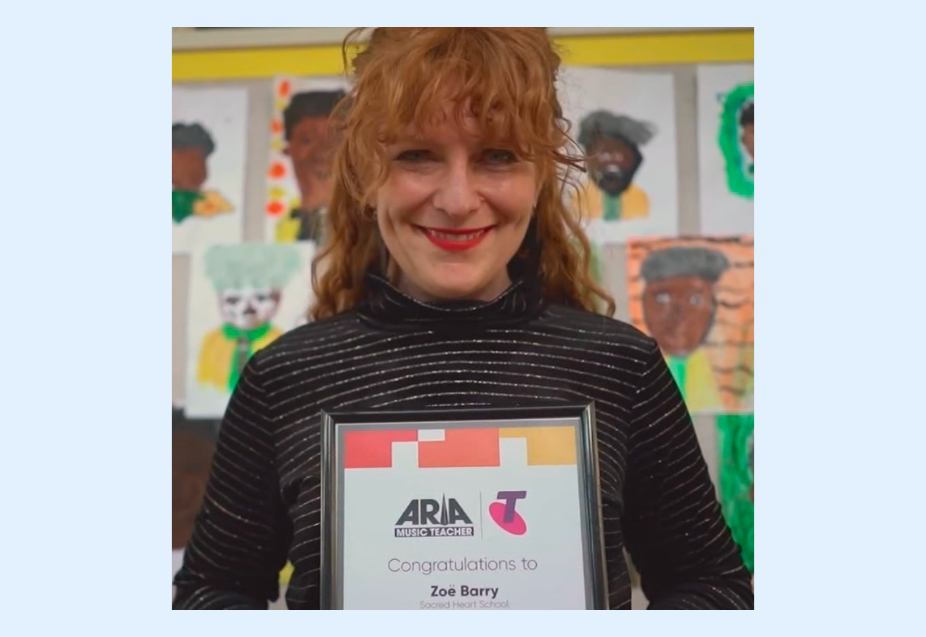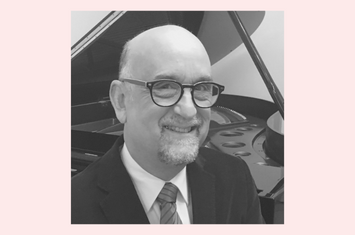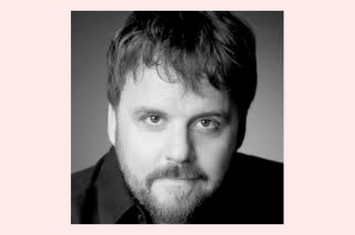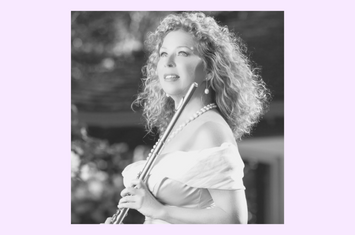
Zoë Barry builds music communities and advocates for the beauty of music.
Zoë Barry talks to us about her journey as a musical child growing up on Adelaide, the endless support of mentors and female musicians throughout her career, the Harmony Strings program and winning "Teacher of the Year" at the 2021 ARIA awards.
Key themes: female mentors, music programs, scholastic community, meaningful music education, education through lockdown, re-engagement with students, ARIA awards, Baker Boy.
Let's start at the beginning and find out when you first started with music, where you grew up and what your music journey led to your decision to become a music teacher.
I was born and grew up in Kaurna land, Adelaide. I was a musical child who always sang and hummed and made up songs. We had a few instruments around the house, so I started teaching myself. My parents noticed that I was very connected with music, so I started music through the public primary school system.
Teachers from the music education department visited my school to see if any students wanted to start learning. One of those teachers was Miriam Morris, a brilliant cello teacher. I had never considered playing the cello before, but I put up my hand and said I'd like to try an instrument.
They tested us on flute, violin and cello and said, "you should play cello". And then I started playing the cello, and I loved it. I started having lessons through the public system and moved into private lessons with Miriam after a couple of years. When Miriam moved to Victoria, I had another brilliant teacher, Claire Oremland, who prepared me to audition for Marryatville High School, a specialist music public high school. I auditioned, got in and had an incredible music education as part of the specialist music program.
I had strong female mentors. I had music teachers who were curious, diligent, and technically strict,encouraging in me the sense that music could open up many worlds of possibilities, both internally, in finding way to get to know oneself, and all of the possibilities of connection, and travel too.
How did you begin teaching music, and what was it like when you began the Harmony Strings program?
My cello teacher encouraged me to start teaching when I was in my late teens. I then taught one-on-one cello tuition and cello programs throughout my Uni degree and my twenties. I taught at many different schools in Adelaide, public and private, primary and secondary. I was always performing, recording and composing, and later moved into theatre making, but always kept up my teaching. The teaching would inform my creative practice and vice versa.
In my thirties, I moved to Melbourne and became a Teaching Artist with The Song Room and Arts Centre Melbourne, teaching music and theatre programs. I also ran workshops across Disability Arts, Youth Arts, and Community Arts, which informed my music teaching. I had been with The Song Room at the Arts Centre, teaching arts programs. I also ran workshops across Disability Arts, Youth Arts, and Community Arts, which informed my music teaching. I was at The Song Room for a couple of years when they conceived a pilot strings program called Harmony Strings, based on the Tower Hamlet model, in London. The idea was to provide free instrumental tuition to students after school in an ensemble rather than one-on-one lessons.All the students would learn violin, cello and viola in small groups. It would all be free and focus on group music making. We began the program in 2011 at Sacred Heart Primary in Fitzroy, an inner suburban school in Melbourne, with Heather Stewart—the violin teacher—and me. It was unusual in that the lessons were part of the school timetable, twice a week. Students had two half-hour lessons a week in small groups and after-school rehearsals. In one week, the students were getting up to four and a half hours of string tuition for free. We focused on the students developing a relationship with their instrument and, through that, an understanding of and fascination with music, with a goal of meaningful, joyous group music making. Improvisation and composition were and still are a key part of the program to encourage curiosity, creativity and a sense of possibility.
We began the program in 2011 at Sacred Heart Primary in Fitzroy, an inner suburban school in Melbourne, with Heather Stewart—the violin teacher—and me. It was radical because the lessons were part of the school timetable, twice a week. Students had two half-hour lessons a week in small groups and after-school rehearsals. In one week, the students were getting up to four and a half hours of string tuition for free.
The school was completely supportive of it. We had the principal, Mary Lawrey—also a professional opera singer—completely behind it, endlessly enthusiastic and supportive. She would often perform with us as well. Mary Lawrey made it clear to the students that the program was part of schooling, part of their learning, and this is just what we do now. Students initially resisted. Even though most of our students come from musically rich cultural backgrounds (predominantly South Sudanese and Vietnamese student populations). Still, the instruments were relatively new and challenging to play. Especially in that first year, there was a lot of frustration with the students that they wanted to be good straight away. But it takes time, patience and slow, slow work involved. As the years went by, Harmony Strings became part of the school's culture. We are string players.
Now, when the students come in at Year 3 (when they start the program) they already know the repertoire because they've seen the older students performing. Role modelling is so important, with the older students regularly putting on concerts for the younger ones, showing them what is possible, and playing brilliantly. That made a change.
What are some of the lessons from your first mentors you're passing on to your students?
To take music seriously.
That doesn't mean you cannot have fun with it or be playful or curious, but that it's something you can be sophisticated with. Be vulnerable. Put all your heart and soul into it because life will be interesting if you do, and life can be richer if you play music.
I very much feel that part of my role as a teacher is advocating for the beauty of music. Music gives you a way of being together with other people that is complex, profound, and hard to articulate.
What have been some career highlights since the beginning of Harmony Strings?
We now have a rich repertoire of pieces that students have composed themselves, and we use them to mark occasions. We have music for welcoming people, for when a baby is born, to celebrate and when there's a family bereavement. The pieces are in the languages spoken at the school. As our wonderful principal, Matthew Shawcross says, we have a third language at the school - music.
My whole focus in this program is for it to be meaningful. It's easy for me to think it's meaningful because I love music, and I'm obsessed with it. But—thinking about how it can be meaningful for the students and the school community is what we are always working towards.
Many students use music to navigate their way in the world. Most students move in and between several cultures, and music can help them define their identity with the cultures of home and school within the Australian context.
There are great moments when we've performed at big events and made award-winning videos. Other times, there’s such joy in simply playing together so regularly. We played the other day for prospective students who had just arrived from Ukraine, and through that welcome, we could say so much with music. By playing a piece. There's a multitude of moments like that every day and across the year of teaching.
What was your teaching experience through the pandemic and after? How did you maintain a community feel and connection with your students?
We moved into online learning, and the school did a fantastic job supporting all families. All the students had laptops, internet, and support, and the school kept full days of learning.
Many students couldn't have their instruments at home, so we switched our program. It gave us pause to think about the values behind the program and how we want to move forward when given the time to re-evaluate. We spent a lot of time in lockdown finding ways to incorporate First Nations music and culture into the program. We also looked at how we could help the students through this stressful time. We did a module on listening and quietness as a way for them to find ways to settle into a much quieter and shared family space. We performed John Cage’s 4’33 across all of our homes!
When we came back to playing together, it was wild and joyous. I was teary a lot of the time. The lockdowns had a real impact on the students, particularly the older ones. We could physically see the results of those years of sitting—the softness in the bodies and the slumped postures—we could feel it too. We got everyone sitting up and opening up again, feeling strength in their bodies and taking up space again, something you can metaphorically and literally do with a string instrument! After almost a year of being back in the classroom together, the students are now getting back into their bodies and have the momentum to learn and play together.
It's great that the ARIA Awards acknowledge the work of music teachers around the country. What was that experience like of being nominated and winning? Also, being introduced by Baker Boy?
I'm a fan of Baker Boy, and so are the students. He really helped us through the lockdown with 'Meditjin'. We played it all the time at home, especially when we were having a tough day. The students have studied him as part of learning.
The ARIAs - I found the whole thing really overwhelming.
As a teacher, it's easy to be aware of all your flaws, especially because you can have a great day and then have a terrible day. It's a humbling profession, and I found it hard to let that goodness in. I had imposter syndrome.
There's a big process once you've been nominated. The ARIAs make beautiful films for each nominee, which tell the school's and teacher's stories. To go ahead with the nomination, I wanted the process and our film to benefit the students and the whole school. There's no point in just doing it for me. It had to enrich our Harmony Strings program. So, it was great that Baker Boy was a part of our ARIAs experience because it was very meaningful and impactful on the students. They got to rap with him and jam with him, and chat with him. He was very generous with his time and gave the students the sense that people knew about the program and about them and supported them. The response from the community was huge!
So many people watched our film and voted. I had people from all aspects of my life contact me. They were so happy to see the film and the program, and the students and see music education being celebrated this way. A lot of music teaching is an invisible experience. And it felt quite unusual for this aspect of my life to suddenly be very public. I think that was what felt a little overwhelming. I felt very protective of the students. And then winning the award was really, really lovely. It felt like such a marker of what the whole community has done to make this program. Harmony Strings is not only about myself and violin teacher Esther Henderson—such a brilliant teacher—it's about this particular group of families, teachers and school meeting at this particular moment.
The students were there when the award was announced on Channel Nine's Today Show. They got to play one of our pieces and speak some Dinka (the spoken language of South Sudanese) when counting in the song. The mums came up to me later; really happy to have heard Dinka being spoken on Channel Nine.
Since then, I have been able to reflect on how incredibly fortunate I was to receive the music education I did. I have really appreciated the chance to speak more about music and education and the importance of music in people's lives.





